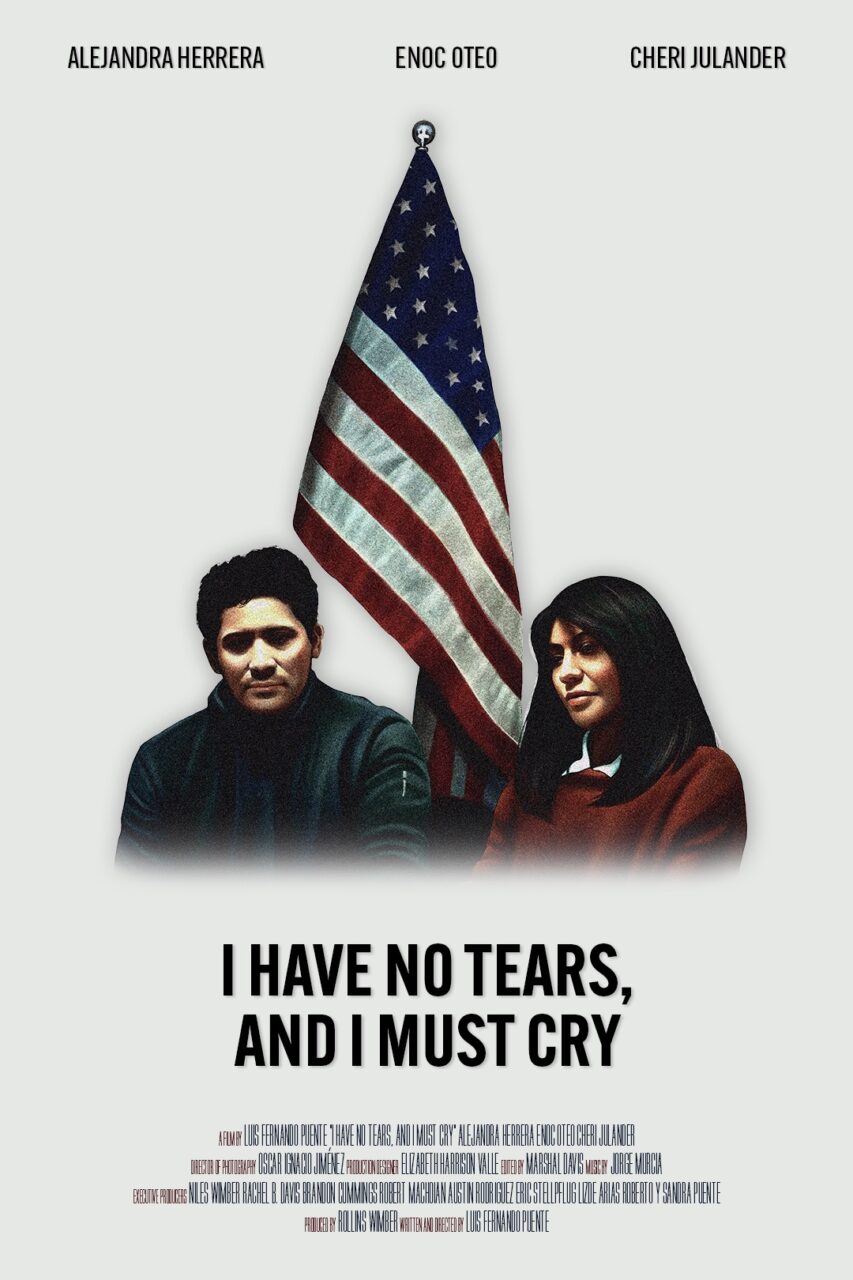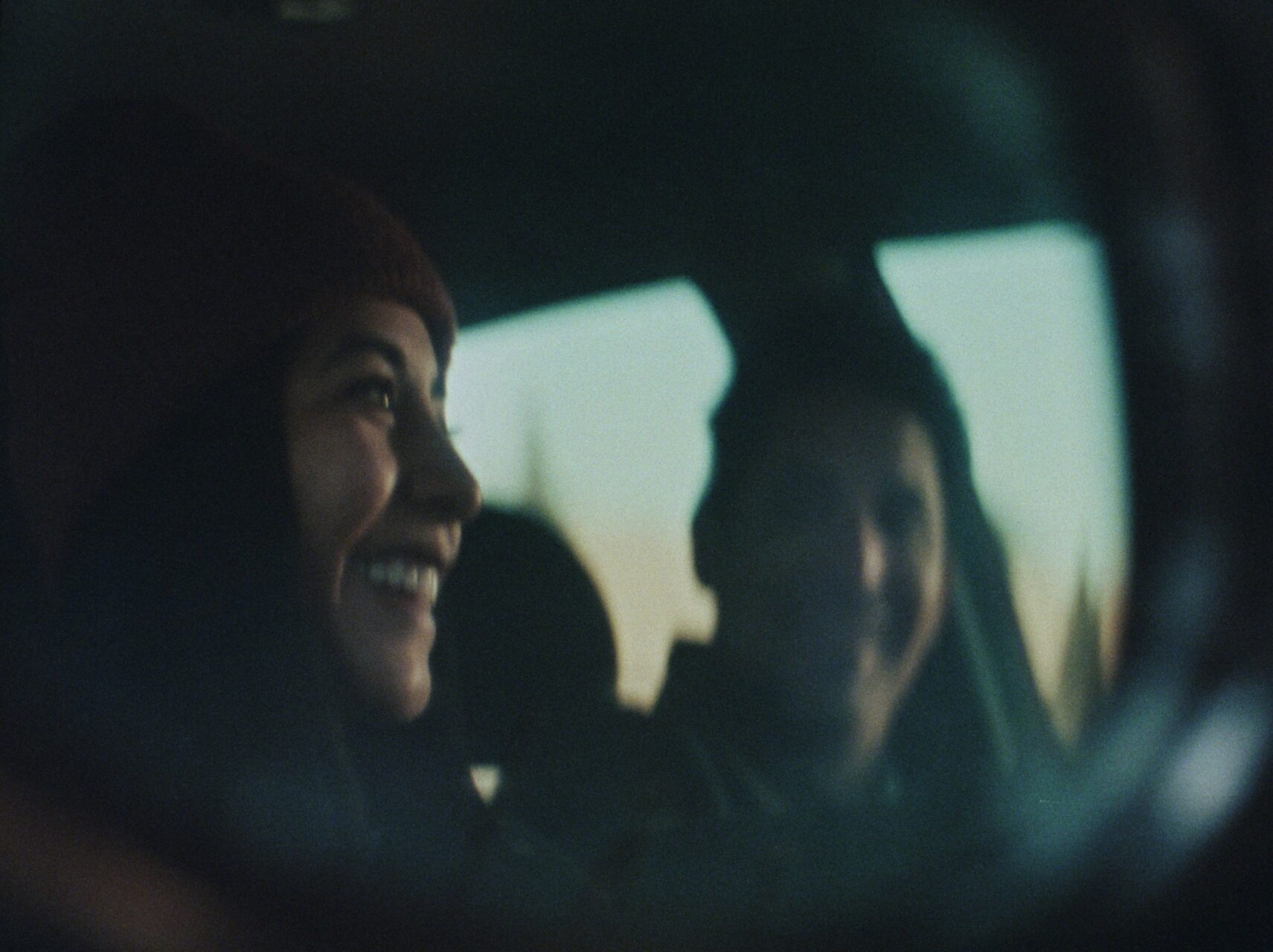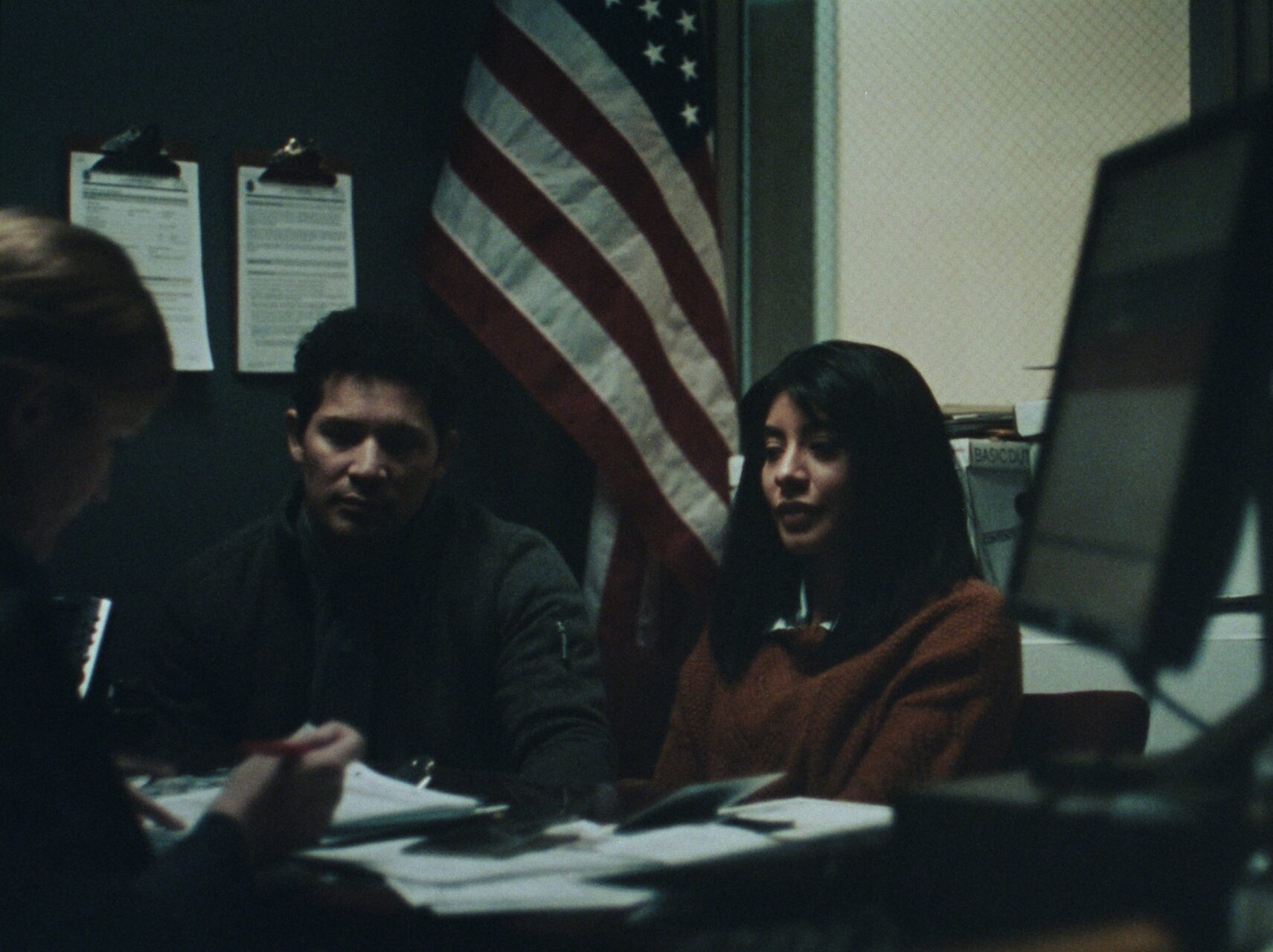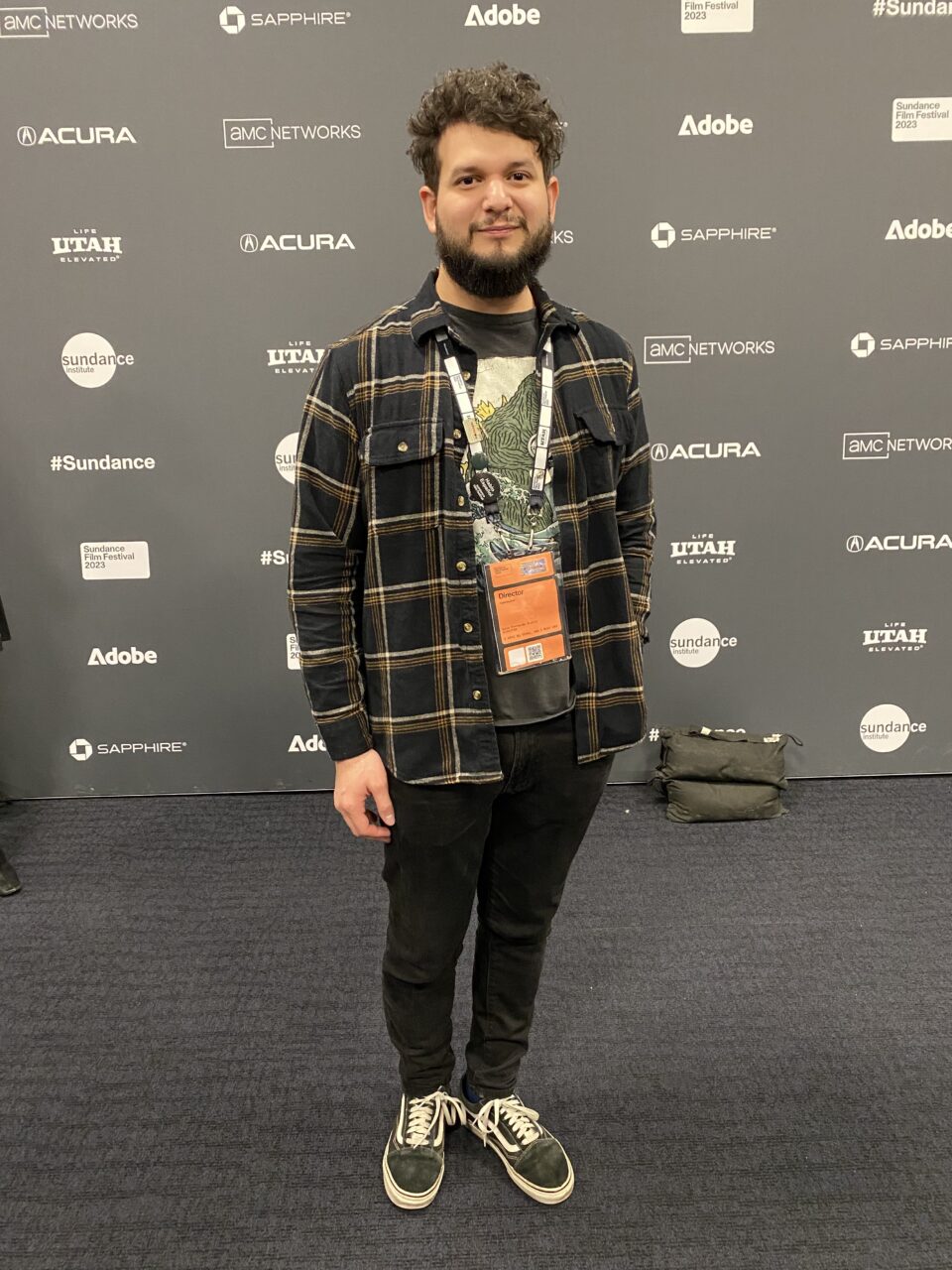
BYU grad Luis Puente’s new short film “I Have No Tears, and I Must Cry,” which premiered last week at the Sundance Film Festival, helps audiences better understand the emotional toll the United States immigration process has on hopeful citizens.
The story of “I Have No Tears, and I Must Cry” is close to Puente’s heart as he and his wife, Lizde, are both Mexican immigrants. The film is based on Lizde’s personal experience in her green card interview.
The film begins with Maria Luisa and her husband Jorge, modeled after Luis and Lizde themselves, as they sit in their car and prepare to enter the immigration office. Jorge checks they have all the necessary documentation for the 20th time as Maria Luisa nervously fidgets with her wedding ring.

“Anyone who isn’t familiar with the immigration process can see this film and at least have more empathy towards anyone who’s going through any part of the process,” Luis Puente said.
While Lizde and Luis’ experience is unique, Luis Puente believes everyone can relate to the film and the immigration experience in some way.
“I think any immigrant can relate to being in a position where they have to prove themselves to a government authority,” Luis Puente said. “To a certain extent, I think anybody can relate to a situation in which they are wanting to move forward with their lives and are not able to because there is an authority figure who is putting a certain block on them.”
As the 13-minute film progresses, Maria Luisa and Jorge enter the immigration office where an immigration officer finds a problem with Maria Luisa’s paperwork and threatens Maria Luisa with possible deportation. Hopes dashed, the film ends with Maria Luisa and Jorge back in their car as they process their uncertain future, both shocked about what just happened and terrified for what their future may hold.

Lizde and Luis Puente were eventually able to get the issue with Lizde’s green card resolved, but the film illustrates the anxiety-ridden process leading up to receiving citizenship, as well as the confusing in-between space people must live in while they await the decision of immigration officials.
After audiences view his film, Luis Puente hopes people will start asking questions about the United States immigration system.
“I’m hoping that people watching ‘I Have No Tears, and I Must Cry’ become a little more familiar with the immigration process and start asking questions. Does it really need to be this hard? Does this need to be this complicated? If there is going to be a system, what can we do to make it better for the people who are looking to have a better life,” Luis Puente said.
Film as a storytelling medium has the unique ability to connect with large audiences, Luis Puente said, which makes it an especially powerful tool for sharing personal experiences such as his. Rollins Wimber, a graduate of the BYU Media Arts program and producer of the film, also emphasized the film’s ability to generate empathy for others.
“We’ve all heard a lot about immigration in the past couple of years, but our film shows a side that is often overlooked,” Wimber said. “There is so much paperwork and bureaucracy, and if you make even a small innocent mistake, your or your loved one’s future is thrown into jeopardy.”
Wimber appreciates how the film shines a light on the stress and anxiety of the immigration process, and said many people have come up to him and Puente after watching the film expressing how they went through a similar experience themselves or with a spouse.
“There’s a community around the immigration process, and we wanted to give that community a voice,” Wimber said.
Puente and Wimber’s film, shot entirely in Orem, was 1 of 64 short films picked to premiere at Sundance out of roughly 11,000 submissions. After submitting the film to Sundance in June 2022, Luis Puente received a call from the prestigious organization in November notifying him that “I Have No Tears, and I Must Cry” had been selected. Although the process was long and daunting, both Puente and Wimber agreed the reward was well worth the struggle.
“Obviously the stakes are not the same, but submitting a film to Sundance is a little bit like submitting a green card application,” Luis Puente joked. “Anyone who submits a film to Sundance knows it is going to be really hard to make it in. The fact that I have a film that was seen by a team of programmers who liked it enough to beat out 10,000 other shorts and screen at Sundance means a lot to me.”
Luis Puente is currently working on developing a feature length version of the film.





